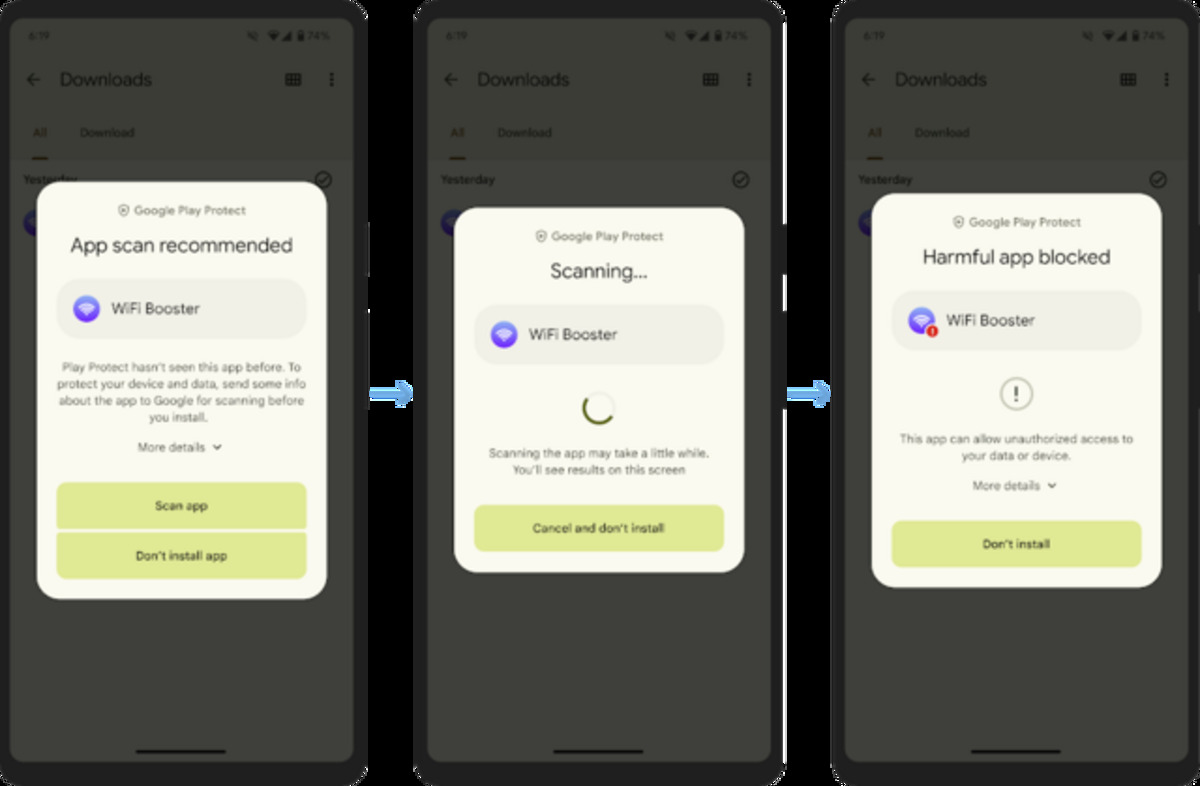Affiliate links on Android Authority may earn us a commission. Learn more.
Google Play has a new way to protect you from malicious apps
Published onOctober 18, 2023

- Google Play Protect will start asking if you want to scan an app before it’s installed.
- The app scan is performed in real-time at the code level to prevent malicious app installations.
- After the scan, users will be told whether the app is safe or not.
If you want to keep your phone safe from malware, it’s necessary to know if the app you’re about to download is malicious or not. That’s true whether you’re using the Google Play Store or some other method for installing an app. To help with that, Google is rolling out enhanced real-time scanning for app installs.
Google has announced it is boosting its threat detection efforts with real-time app scanning at the code level. Google Play Protect will now ask if you want to scan an app before you install it. It will then notify you if the app is safe or potentially harmful.

Google Play Protect already protects Android devices with Google Play Services from malware, whether an app is installed through the Play Store or outside of it. However, these real-time checks previously relied on existing scanning intelligence or data that identified the app as suspicious based on similarity comparisons, machine learning, or other techniques.
The difference now is that your phone will recommend a scan prior to any installation. That app will then undergo a code-level evaluation, where a real-time threat analysis will be made. Google says this will help protect users from malicious polymorphic apps that use AI or other methods to avoid threat detection.
The Mountain View-based organization states that its machine-learning algorithms use the information to further improve Android ecosystem security. Each app that’s scanned helps to identify app behaviors, which in turn, helps strengthen protections.
The new Play Protect feature is rolling out first to India and will expand to select countries. It will eventually come to all regions in the coming months, according to the tech giant.